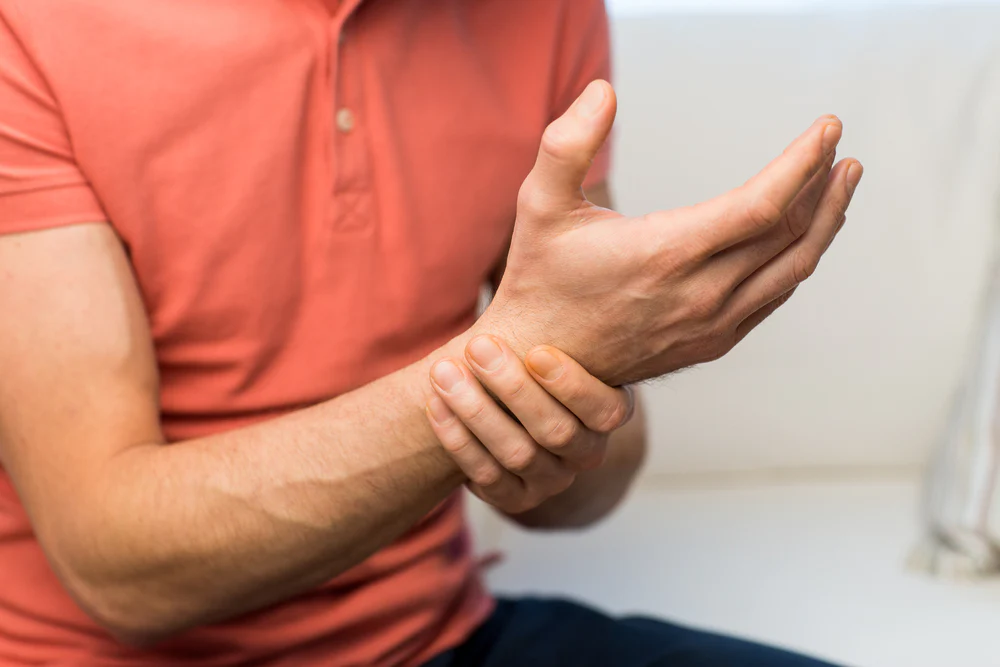Sleep Disorders and Conditions
Why Do My Arms Fall Asleep at Night?
Have you ever woken up in the middle of the night to a strange tingling sensation in your arm? Maybe it felt like your arm was “asleep,” and you had to shake it out to get the feeling back. This experience can be frustrating, especially if it happens frequently. So why do your arms fall asleep at night? In this blog, we’ll explore the causes and possible solutions to this common sleep problem.
What Causes Arms to Fall Asleep at Night?
The tingling sensation you feel in your arm when it falls asleep is called paresthesia. This sensation occurs when there is pressure on a nerve, which causes a temporary interruption in the nerve’s blood supply. When the blood supply returns, the nerve signals can become scrambled, resulting in that familiar tingling sensation.
There are several reasons why your arms may be falling asleep at night, including:
Sleeping Position: Sleeping in a position that puts pressure on your arm, like sleeping on your side with your arm tucked under your pillow, can cause your arm to fall asleep.
Compression: Tight clothing or accessories, such as a watch or bracelet, can compress nerves and cause paresthesia.
Poor Posture: Sitting or standing in the same position for a long time can put pressure on nerves and cause them to become compressed.
Medical Conditions: Certain medical conditions, such as carpal tunnel syndrome, diabetes, or peripheral neuropathy, can also cause paresthesia.
Preventing Arms from Falling Asleep at Night
There are several things you can do to prevent your arms from falling asleep at night:
Change Your Sleeping Position: If you tend to sleep on your side with your arm tucked under your pillow, try sleeping with your arm outside the covers instead. You can also try sleeping on your back with a pillow under your arms for support.
Loosen Tight Clothing: Remove any tight clothing or accessories before going to bed, like a tight watch or bracelet.
Stretch and Move: Take breaks during the day to stretch and move around. This can help prevent nerve compression from sitting or standing in one position for too long.
Keep Good Posture: Try to maintain good posture throughout the day to prevent nerve compression.
When to See a Doctor
In most cases, arms falling asleep at night is not a serious issue and can be easily remedied. However, there are some situations where you should see a doctor:
Chronic Paresthesia: If you experience paresthesia frequently, it may be a sign of an underlying medical condition. Your doctor can help diagnose and treat the condition.
Severe Pain: If you experience severe pain in addition to paresthesia, it may be a sign of a more serious issue.
Difficulty with Movement: If you experience difficulty moving your arm or hand after it falls asleep, it may be a sign of nerve damage.
In these situations, it’s important to see a doctor for an evaluation and treatment.
Arms falling asleep at night is a common issue that can be caused by a variety of factors. Fortunately, in most cases, it can be easily remedied by changing your sleeping position or loosening tight clothing. If you experience chronic paresthesia or severe pain, it’s important to see a doctor for an evaluation and treatment. By taking care of your body and being mindful of your sleeping position, you can prevent your arms from falling asleep at night and enjoy a good night’s sleep.
Sleep Disorders and Conditions
Sleepless in Psychiatry: Unraveling the Role of Sleep in Neuropsychiatric Illnesses
Sleep Disorders and Conditions
When Sleep Disorders Clock In: Insomnia’s Impact on Productivity of Young Adults
Sleep Disorders and Conditions
Why Does My Body Twitch When I Sleep
Sleep Disorders and Conditions
Hypnic Jerk: Why Do I Twitch in My Sleep?
Sleep Disorders and Conditions
When your Arm Falls Asleep: Causes and Treatments
Sleep Disorders and Conditions







